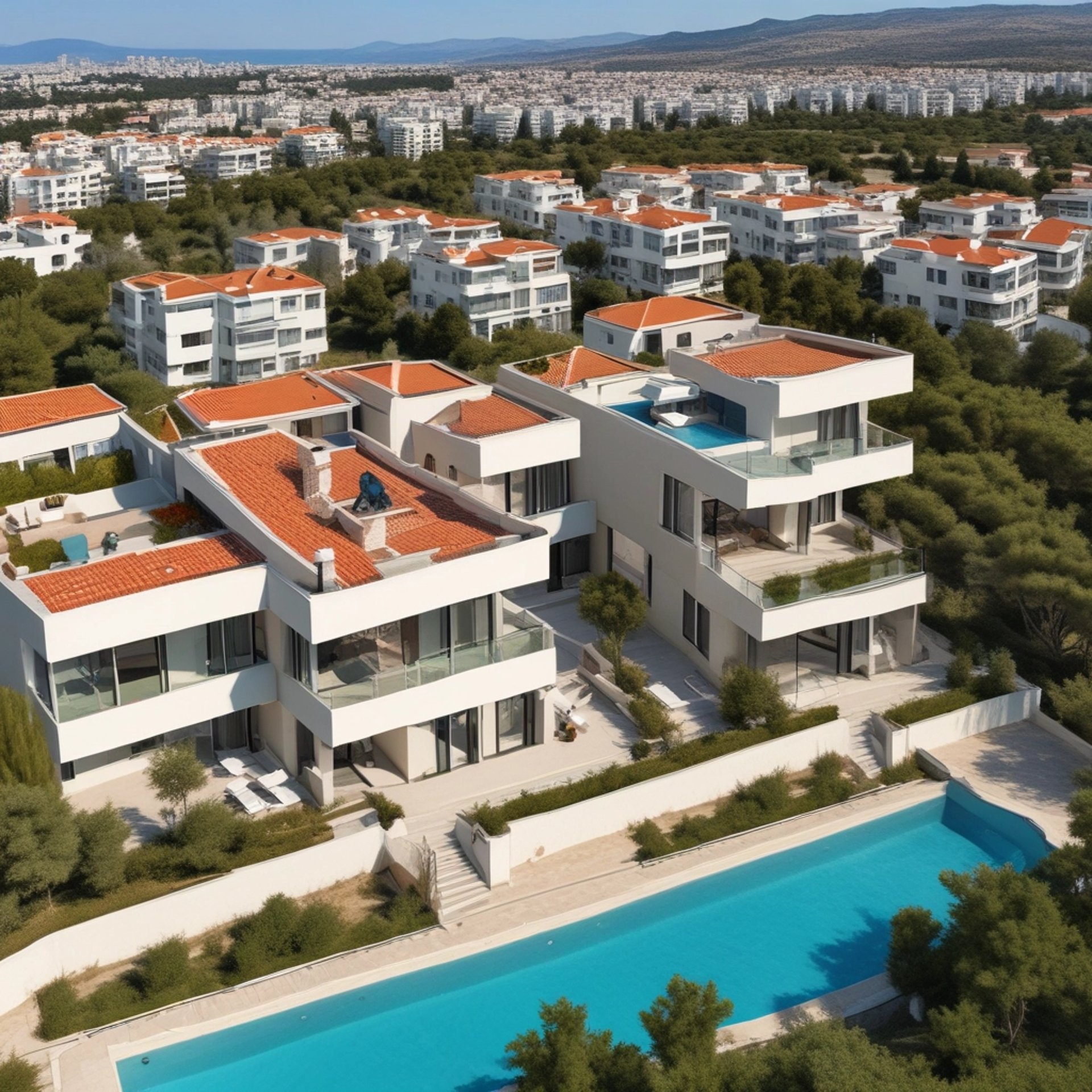How to Choose the Right Area for Real Estate Investment in Greece
Greece offers one of the most diverse property markets in Europe — from vibrant city apartments to seafront villas and island retreats. But choosing where to invest is the key factor that determines long-term success. Location in Greece is not just about scenery; it’s about demand, infrastructure, and future growth.
REAL ESTATE INVESTMENT
Christos Boubalos - poli.gr
10/14/2025

1. Define Your Investment Goal
Before selecting an area, ask yourself what you’re aiming for:
Rental income (steady cash flow)
Capital appreciation (long-term value growth)
Personal use (holiday or retirement home)
Each goal points to different types of areas and properties.
2. Athens — The Beating Heart of the Market
🏙️ North Suburbs (Marousi, Chalandri, Kifissia)
Popular with professionals and families.
Strong infrastructure: schools, metro, business hubs.
Average prices 2025: €3,500–€5,000/m².
Ideal for: long-term rentals and energy-efficient new builds (AAA+).
🌊 South Suburbs / Athens Riviera (Glyfada, Voula, Alimos)
Sea views and lifestyle appeal.
Attracts both locals and international buyers.
Average prices: €5,000–€8,000/m².
Ideal for: premium rentals, short-term stays, and high-end resale value.
🏛️ Central Athens (Kolonaki, Mets, Koukaki, Pangrati)
Urban revival areas with high demand from digital nomads and students.
Average prices: €2,800–€4,500/m².
Ideal for: short-term rentals, boutique renovations, or mixed-use projects.
3. Coastal and Island Investments
🏝️ Evia
Greece’s hidden gem — accessible by car from Athens in under 2 hours.
Offers coastal plots, villas, and boutique hotel potential.
Still undervalued compared to Cyclades or Crete.
Ideal for: second homes or small-scale development projects.
🌅 Cyclades & Crete
Santorini, Paros, Mykonos, and Chania remain top-tier tourism magnets.
Premium demand, but also higher entry costs and seasonal management needs.
Ideal for: luxury villas and tourism-oriented investments.
4. Secondary Cities with Strong Fundamentals
Thessaloniki
A growing tech and logistics hub.
Student population and port development create steady demand.
Patras & Larissa
Lower property prices and solid rental returns from local students.
Suitable for smaller investors entering the market.
5. Key Criteria to Evaluate an Area
When comparing regions, focus on:
Accessibility: proximity to metro, airport, or major roads.
Development plans: upcoming metro lines, urban regeneration, new business zones.
Demand drivers: universities, offices, tourism, or international schools.
Energy standards: new A+ or AAA+ projects dominate buyer interest.
Rental performance: check long-term vs. short-term yields.
✅ Conclusion
The Greek real estate market is not one-size-fits-all.
Choosing the right area depends on your strategy — whether it’s steady rental income in Athens’ northern suburbs, capital growth along the Riviera, or value-for-money development in Evia.
With careful analysis and the right local guidance, Greece offers some of Europe’s most promising real estate opportunities for 2025 and beyond.
📞 Need Help Choosing the Right Location?
At POLI Real Estate, we specialize in matching investors with high-performing projects across Athens and the Greek coastline — from AAA+ developments to unique seafront plots.
Brokerage
Contact
info@poli.gr
+30-6972-666688
+30-6972-885885
© 2025 Poli Real Estate. All rights reserved.
